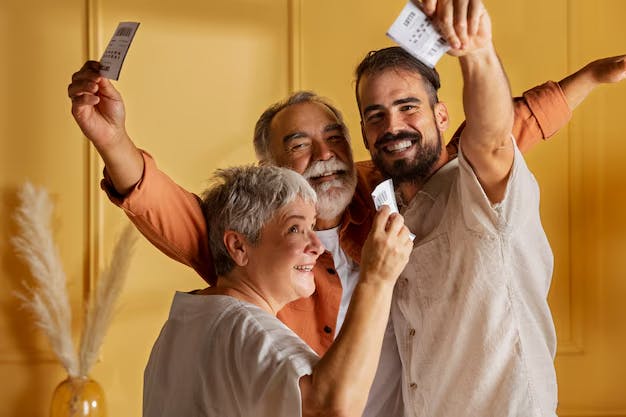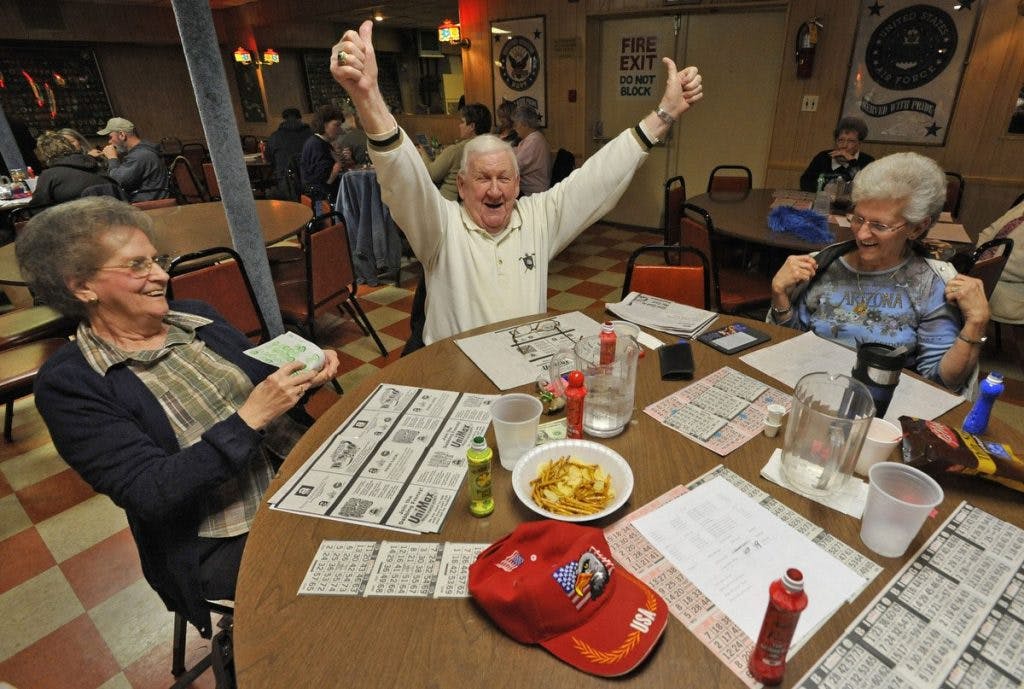How Age Affects Lottery Playing Styles
From number selection to betting frequency, different generations have distinct approaches when it comes to playing the lottery
The Lottery House
tags:
generation
habit

A Look at Generations and Their Gambling Habits
Playing the lottery is a practice that spans generations, bringing together people of different ages in search of a common dream: the chance to change their lives with a winning ticket. However, the ways in which these different age groups approach the game vary considerably. From how they choose their numbers to how often they play, each generation has its own peculiarities. In this article, we will explore how age affects lottery playing styles by examining the preferences and habits of young adults, the middle-aged generation, and the elderly.
Playing Among Young Adults (18-35 Years)

Motivation and Expectations
For the younger generation, encompassing those aged 18 to 35, the lottery is often seen as an opportunity to quickly resolve financial issues, such as student debt or purchasing a first home. The promise of instant wealth is especially appealing to those who are just starting their professional lives and may face significant financial challenges.
Additionally, this age group tends to be more impulsive and motivated by immediacy, which is reflected in their playing style. Rather than following a defined strategy or historical patterns, many young adults opt for numbers that have personal meaning, such as birthdays, special dates, or even combinations they consider "lucky."
Betting Frequency
The frequency with which this generation plays is also quite variable. Young adults are more likely to participate in games sporadically, motivated by large prizes or accumulated jackpots. Online lotteries and mobile apps have made access even easier, allowing this generation to place bets quickly and conveniently, which has contributed to increased participation.
Preference for Digital Lotteries
Another important aspect is the preference among young people for digital platforms. Online lotteries offer the convenience of playing anytime, anywhere, and young adults are more comfortable with technology, making online lotteries a natural choice. Furthermore, many of these players are also drawn to new lottery formats, such as instant lotteries or interactive games that combine lottery elements with video games.
The Middle-Aged Generation (36-55 Years)

Strategies and Planning
For the middle-aged generation, playing the lottery is often approached with more strategy and planning. Individuals in this age group tend to be more methodical in number selection, basing their choices on patterns or previous draw analyses. They are more inclined to follow systems they believe to be scientifically based, even if these systems have little or no real foundation.
Regular Betting
Regularity in betting is a hallmark of this generation. Unlike young adults who may play more casually, middle-aged individuals tend to participate regularly, often buying lottery tickets weekly or even daily. For many, it is part of an established routine, with the hope that persistence will one day pay off.
The Search for Financial Security
For many aged 36 to 55, the lottery is not just a game but a possible way to achieve financial security, especially at a stage in life where financial responsibilities—such as mortgages and children's education—are at their peak. They see the lottery as a chance to alleviate financial pressures and ensure a more stable future.
Preference for Traditional Formats
Despite the advent of digital lotteries, this generation still values traditional methods of ticket purchase. Many still prefer to visit physical stores to buy their tickets, perhaps out of habit or for the tangible pleasure of holding a ticket in hand. However, they are also not averse to technology, and many complement their traditional bets with online games.
Older Adults (Over 56 Years)

A Game of Tradition and Nostalgia
For older adults, the lottery often represents a long-standing tradition. They may have started playing when they were younger, and over the years, the game has become a regular part of their lives. Many have specific numbers they've been playing for decades, often based on special dates or feelings of nostalgia.
The Bet as Part of the Routine
Senior citizens tend to be the most regular players. For many, buying a lottery ticket is part of a weekly routine that offers a sense of continuity and hope. For some, the lottery also serves as a form of entertainment, an opportunity to dream of a life-changing win, even if the odds are low.
Resistance to Technology
While online lotteries are becoming more popular, older adults generally prefer traditional methods. Many still purchase their tickets at physical retail points and may be resistant to using digital platforms to play. Distrust of online security and lack of familiarity with technology are factors that contribute to this preference.
The Game as a Social Hobby
For the older generation, the lottery can also be a social activity. When buying tickets in local shops, they often interact with vendors and other players, which can be an important part of their daily or weekly routines. This social interaction is an aspect that online platforms cannot replicate, partly explaining this generation's resistance to moving to digital.
Conclusion:

The way people play the lottery is deeply influenced by age. Each generation brings different expectations, motivations, and methods when betting, from choosing numbers to the frequency of play. While young adults are more attracted to the convenience and digital lotteries, the middle-aged generation values strategy and regularity, and seniors maintain a strong attachment to the traditions and social aspects of the game. However, one thing remains constant: the fascination with the lottery and the hope of turning a ticket into a fortune, a desire that transcends generations.